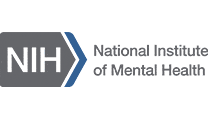DARE…to keep your kids off ADHD drugs?

To medicate or not to medicate? That is the question.
For years, drug manufacturers have been touting the benefits of ADHD medications such as Adderall, Ritalin, Strattera and Dexedrine. One of their key weapons in that media blitz has always been the 1999 paper released after a National Institute of Mental Health (NIMH) study which claims medication “was superior to behavioral treatment.” However, a new long-term follow-up study of the initial participants is calling into question the usefulness of their original data. It seems that many of the initial gains from medication have worn off, especially since most of the participants no longer use drugs to control their ADHD in adulthood.
Unfortunately, these finding leave many parents again wondering what is the best method for helping children succeed with ADHD. Sure, drugs are cheap; some will only cost your insurance company about $200 a year (the obvious choice for insurance companies to cover). Drugs only treat the symptoms of ADHD for a limited time, some for only 4-6 hours, and they don’t address underlying emotional and mental problems. Additionally, side effects include loss of appetite, weight loss, irritability, insomnia, tics, anxiety, rashes, upset stomach, and rarely heart conditions, liver problems, suicidal thoughts or death. Making it even more dangerous, drugs like Adderall and Ritalin have a high likelihood of abuse and may be used recreationally.
Therapy can be very expensive and slow. Many parents love the study and life skills that their children learn from behavior therapy, but years of some one-on-one treatments could bankrupt Warren Buffet. While that is an exaggeration, the cost may be hard to justify when it could take years for the gains to show. Many people fail to realize that ADHD professionals can focus on a lot of areas that medicine simply cannot address; therapist help children deal with time management issues, organization, controlling anger, eliminating impulsive behavior and reducing stress.
How about a combination? As you can see, there are pros and cons for both treatments; so, why not take the best of both? Medicine is fast acting and inexpensive. While you will need to monitor dosage, side effects and for signs of abuse, there is no real substitute for the controllable and instant effects of medicine. Behavior therapy can easily be used to compliment your choice of medication. As mentioned, therapists can teach your child skills that may alleviate the need for medicine, or at least allow for a reduced dosage. Therapists can also help children deal with the irritability and anger the medication may cause. New training programs like IM-Home and BrainBeat are great long-term training programs that can be done from the convenience of your living room. Programs like these are helping children control their ADHD with clinic quality therapy available at any time at a fraction of the cost.
Lastly, no matter what decision you make, there is no substitute for good health. It is important for children to eat healthy, exercise regularly and get plenty of sleep. Rewind. It is important for ANYONE to eat healthy, exercise regularly and get plenty of sleep.
· Diet – A healthy diet ensures your brain has all of the nutrients to reach its maximum potential, and without a healthy brain no treatment can really be effective.
· Exercise – Regularly activity boosts dopamine, norepinephrine and serotonin levels, all of which have a major impact on focus, attention, memory, coordination and mood. Plus, the physical activity will help tire out your children and reduce hyperactive behavior.
· Sleep – All of that new, delicious food and extra exercise is going to take a lot out of you. Getting plenty of sleep helps hormone levels, attitude and overall physical help.
Now it is your turn to weigh in. What do you think? Is it better to use medication, behavior therapy, both, or none of them to control ADHD? Why?
